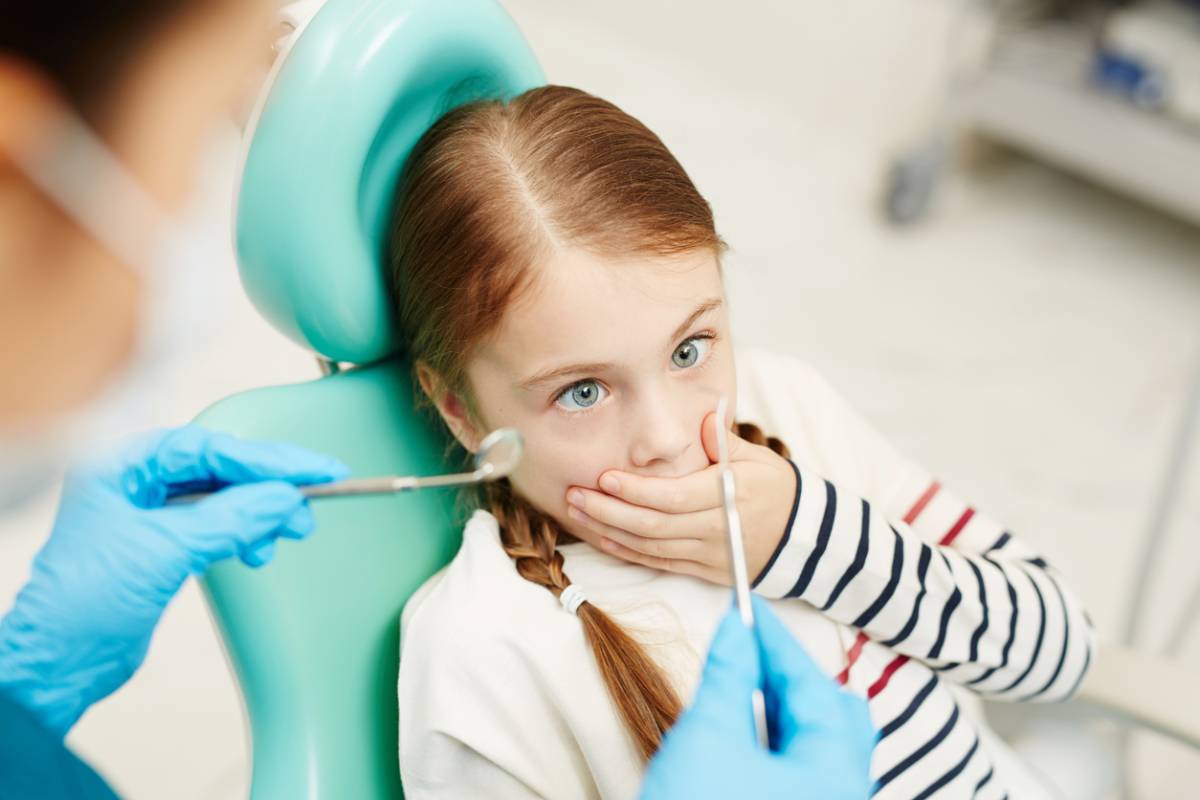Dental anxiety is a prominent condition in children with potential long-term side effects. According to some of the first research on the topic, pediatric dental anxiety seems to stem from two major causes. For a sizeable number of the cases, previous negative experiences at the dentist appeared to be the primary cause. But helping your child through dental anxiety can prove easy.
However, researchers also noted that children whose parents demonstrated dental anxiety were twice as likely to experience the condition. This observation fit with other instances in which the modeling of anxious behavior by parents or older siblings seemed to increase the child’s anxiety. At your top child’s dentist in Irvine, we help you every step.
Helping Your Child through Dental Anxiety
Fortunately, this research means that there are systematic ways that you can actually help your child through their dental anxiety. It will be a slow process, but you will be surprised what a little time and patience can do. By using the suggested techniques, you can slowly acclimate your child to being at the dentist’s office, reducing their anxiety and making it much easier for them to maintain their oral health throughout their life. Here are a few tips to get started.
At your dentist in Irvine, we take every precaution to ensure a comfortable experience.
Consider Switching Dentists
If your child had a negative experience with your current dentist, then overcoming that fear in the same office is going to be really hard for them. Depending on their age, they may struggle to understand that their negative experience wasn’t normal. Finding a new pediatric dentist may be the easiest way to show your child that you intend to change the pattern that was set by their negative experience.
Let Them Know What’s Going to Happen
Children are often left out of the loop when it comes to important things like their health. Unfortunately, this leaves your child feeling like they have no control and no idea of what to expect. We’re all familiar with the fear of the unknown, so your child’s anxiety may start to make more sense if you think of it that way. To avoid this, make sure you give your child as much information as possible in a way that they can understand it. It also may be a good idea to have your dentist tell them what will happen, but only if they have a great pediatric bedside manner.
Visit Your Dentist Whenever You’re Close By
For very young children, it is important to break down the direct association between the child’s negative emotions and actually being at the dentist’s office. Fortunately, you can start this process just by popping in to say hi to the receptionist and letting your child sit in the waiting room for a few minutes. Whenever you make this visit and nothing bad happens, the association becomes weaker, giving you more to work with.
Use Positive Reinforcement
It may sound simple, but positive reinforcement is an important part of retraining your child to see the dentist as a positive part of their life. Think about what really gets your child excited. Do they have a favorite toy or treat? Do they respond best to verbal affirmation? After a dentist trip, make sure you reward any good behavior that occurred as quickly as possible.
Breathing Exercises Are Your Friend
For children with intense anxiety, it can be tough to make it past the barrier created by their fear. Breathing exercises can help them regain control over their breathing and any other physical reactions to their anxiety. To pique their interest, you might consider using a breathing exercise or mediation app targeted at children. Some examples include DreamyKid or Breathing Bubbles. Once they’ve regained some physical control, they’ll be more receptive to listening.
The Honest Truth
Being a parent is never easy, and the dentist can be a very scary place for your children. By being patient and modeling calm behavior, you can do a lot to reduce their anxiety, but there is no instant fix. To help your child eventually overcome their anxiety, work with the OC Dental Specialists to find the right approach for your child.

